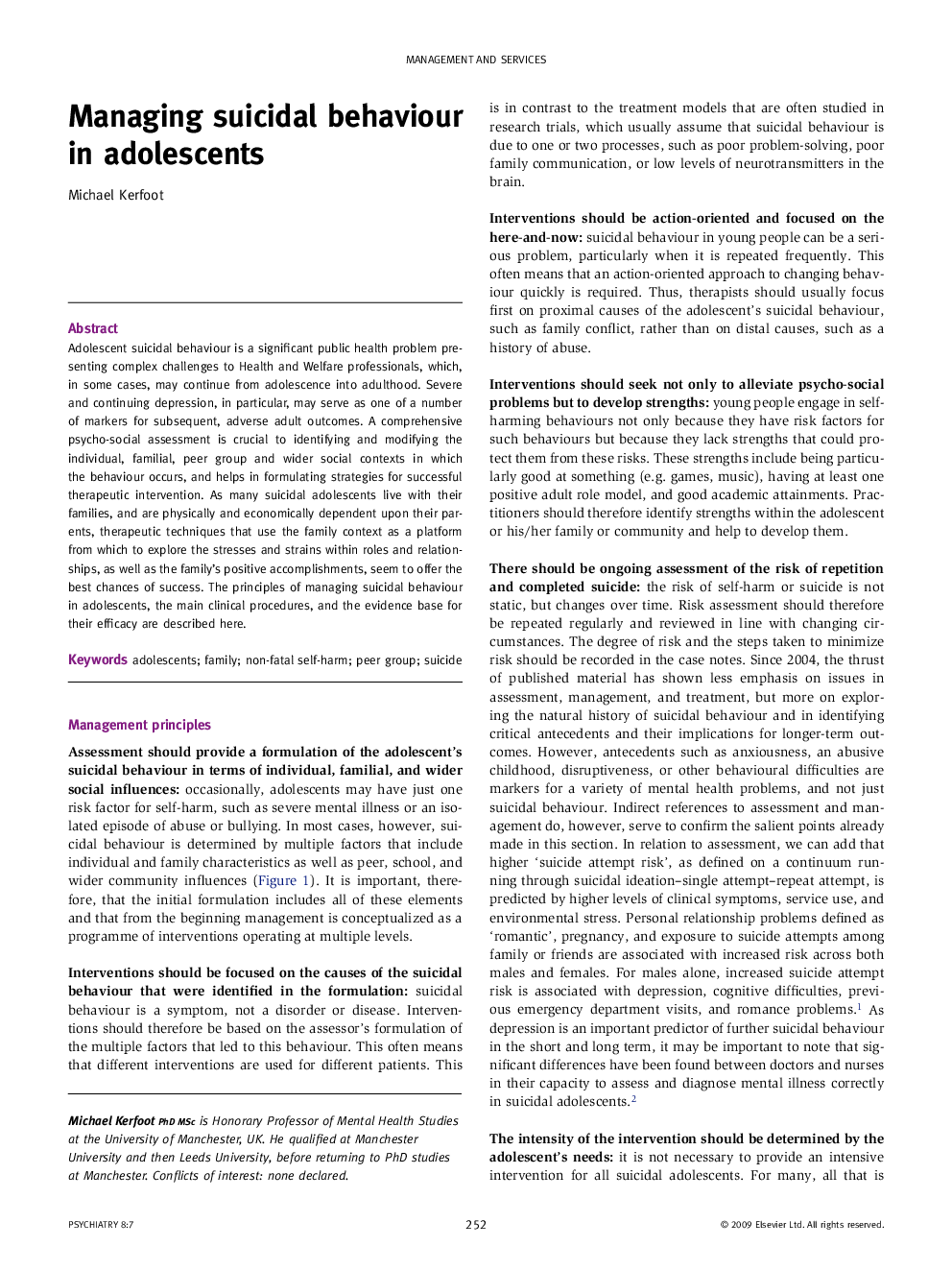| Article ID | Journal | Published Year | Pages | File Type |
|---|---|---|---|---|
| 4189814 | Psychiatry | 2009 | 5 Pages |
Adolescent suicidal behaviour is a significant public health problem presenting complex challenges to Health and Welfare professionals, which, in some cases, may continue from adolescence into adulthood. Severe and continuing depression, in particular, may serve as one of a number of markers for subsequent, adverse adult outcomes. A comprehensive psycho-social assessment is crucial to identifying and modifying the individual, familial, peer group and wider social contexts in which the behaviour occurs, and helps in formulating strategies for successful therapeutic intervention. As many suicidal adolescents live with their families, and are physically and economically dependent upon their parents, therapeutic techniques that use the family context as a platform from which to explore the stresses and strains within roles and relationships, as well as the family’s positive accomplishments, seem to offer the best chances of success. The principles of managing suicidal behaviour in adolescents, the main clinical procedures, and the evidence base for their efficacy are described here.
